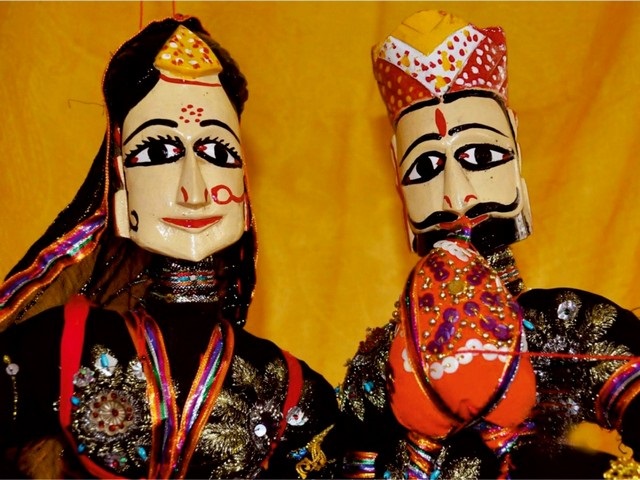
New Delhi: On the occasion of World Puppetry Day, Sangeet Natak Akademi of New Delhi, an autonomous body under the Ministry of Culture, is organising a puppet festival 'Putul Utsav' in five cities on Monday. With India celebrating Azadi ka Amrit Mahotsav commemorating 75 years of independence, the theme of the festival is 'Azadi ke Rang, Putul Ke Sang'.

Sangeet Natak Akademi, in a press statement, informed that in this gala event, tales of India's struggle for freedom will be retold through the medium of puppets. The festival commencing today will be celebrated through various events in five different cities - Varanasi (Uttar Pradesh), Hyderabad (Telangana), Angul district (Odisha), New Delhi and Agartala (Tripura). "An interesting line-up of acts includes performances by famous puppeteers, both traditional and contemporary, a seminar, demonstrations and workshops where participants can create their own puppets and carry them back home," read the statement.
In Hyderabad and Varanasi, Putul Utsav will be marked by a three-day long festivity from March 21-23, while in the Angul district, it will be held from March 21-22.
However, Delhi and Agartala have a one-day event on March 21. The event at New Delhi will begin at 2 pm today, at Jan Madhyam, Aya Nagar. In Hyderabad, the event will be held at the CCRT amphitheatre, while Subah-e-Banaras, Assi Ghat will be hosting the event at Varanasi.

The show in Angul will be organised at Shriram Institute of Shadow Theatre and at Muktadhara Auditorium in Agartala. During the festival, the Sangeet Natak Akademi informed that one could find all four kinds of puppets traditionally used: String, Shadow, Rod and Hand puppets. Secretary of Sangeet Natak Akademi Temsunaro Jamir added that though puppet theatre in India still enjoys popularity, Putul Utsav will give it a renewed vigour as a new generation of audiences is introduced to traditional puppetry, intangible cultural heritage of India.
The art of puppetry has been an intercultural theatre tradition since time immemorial, popular as a tool for communication, education and recreation.
Puppetry tradition in India goes back a long way and the art has been written about in historical Indian literature like the second-century treatise on drama, Natyashastra and the Tamil text Silpaddikaram. Puppetry was traditionally a temple-based art, narrative in nature whose themes were borrowed from puranic literature, mythology, epics and local legends. (ANI)







